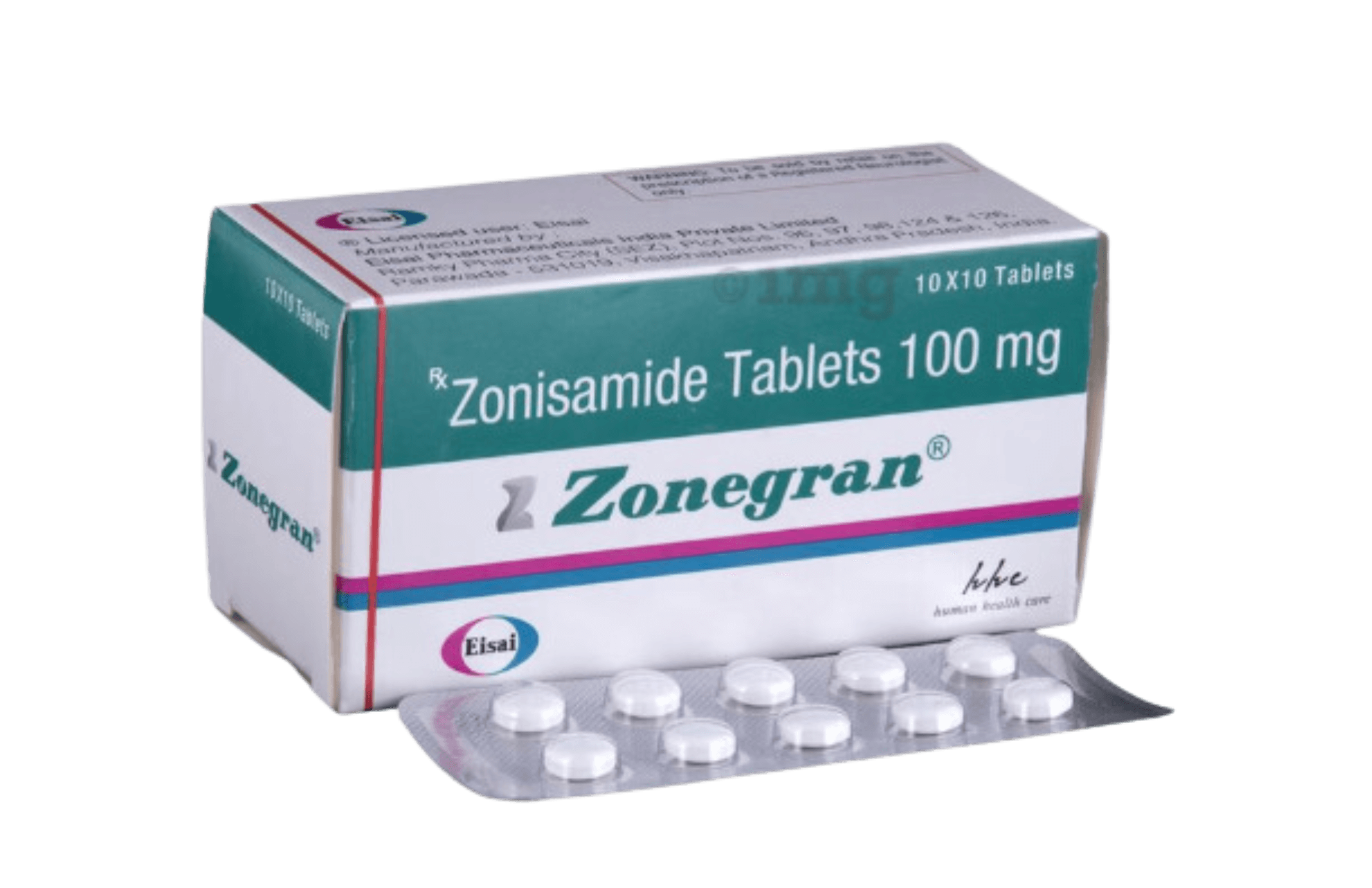Zonegran (generic name: zonisamide) is an
anticonvulsant medication primarily used to treat
partial seizures in adults with epilepsy. It can be used alone or in combination with other antiepileptic drugs.
Zonisamide works by stabilizing abnormal electrical activity in the brain, thereby reducing the frequency and severity of seizures. It belongs to the
sulfonamide class of drugs and offers a unique mechanism compared to other treatments. The medication has proven effective in managing epilepsy while helping to maintain a consistent neural balance.
Dosage
The doctors set the dosage regimen and it should not be changed without first consulting them. Zonegran may be prescribed as the only drug (monotherapy), or together with another antiepileptic drug (adjunctive therapy) when additional action is required.
The typical starting dose for
monotherapy in adults is 100 mg once daily, which may be increased in steps to 100 mg every two weeks. The usual maintenance dose is 300 mg once daily,
The usual starting dose in
adjunctive therapy is 50 mg daily, divided into two doses of 25 mg. This may be increased by up to 100 mg at intervals of one to two weeks. The usual daily dose ranges between 300 mg and 500 mg.
The dose is based on weight for children aged 6 to 11 and adolescents aged 12 to 17. The usual daily dose is 6 to 8 mg per kg, not exceeding 500 mg, taken once a day.
Capsules should be swallowed whole with water and can be taken with or without food. Do not chew the capsules. If a dose is missed, take it as soon as possible unless it’s close to the next scheduled dose. Do not double-dose to make up for a missed dose. Abrupt cessation must be avoided; consult a healthcare provider for tapering instructions.
Storage
Store Zonegran in a cool, dry place away from direct sunlight. Keep the medication out of reach of children. For more information, read our article on drug storage,
Common Questions About Zonegran
Can Zonegran be taken with other medications?
Zonegran can interact with other medications, potentially altering its effectiveness or increasing side effects. To assess potential interactions, inform the prescribing healthcare provider about your medications and supplements.
How long does Zonegran take to work?
Effects may be noticed within a few weeks, but optimal benefits often require consistent use over time.
Can Zonegran prevent other neurological conditions?
While primarily for seizures, it may occasionally be prescribed
off-label for migraines under medical advice.
This text is for informational purposes only. Please consult a doctor or pharmacist before using any medication.
Read the information leaflet that comes with the medication.
Serious side effects such as suicidal thoughts, kidney stones, or severe allergic reactions (including Stevens-Johnson syndrome) require immediate medical attention.
Most people who use Zonegran do not experience any adverse side effects. Doctors prescribe this medication because they assess the benefits of such treatment outweigh any likely unwanted effects.
Some of the side effects that have been reported include:
- Loss of appetite
- Drowsiness, dizziness, coordination issues
- Agitation, confusion, depression
- Fatigue, difficulty concentrating
- Nausea, vomiting, weight loss.
Contact your doctor right away if any of the following symptoms are noticed:
- Skin rashes
- Seizures worsen
- Signs of a blood problem (fever, sore throat, sores in your mouth, or bruising easily)
- You start having unusual thoughts
- You develop speech or language problems.
Not all side effects are listed here. If these or other unlisted symptoms persist or worsen, consult a healthcare provider or pharmacist.
Zonegran is FDA-approved for the management of partial-onset seizures in epilepsy. These seizures originate in a specific brain region and may spread, causing various neurological symptoms. The medication stabilizes brain activity, reducing seizure frequency.
For individuals experiencing other symptoms, such as migraines, zonisamide may be prescribed off-label by a physician under specific conditions. Always consult a doctor for appropriate guidance.













